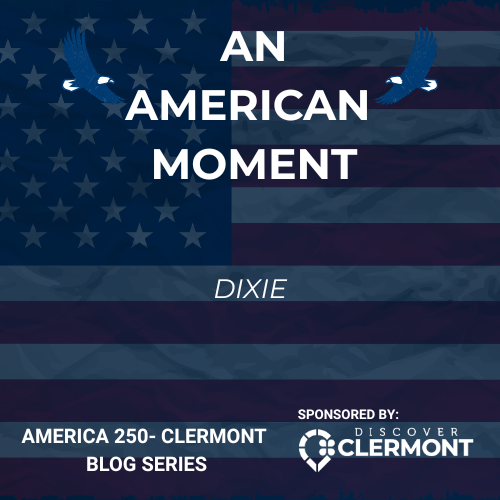April 10, 1865: The people of the North were jubilant. General Robert E. Lee had surrendered his Army of Northern Virginia, the day before, to General U.S. Grant. The four year-long War Between the States was over at the cost of 750,000 American lives.
The citizens of Washington, D.C. celebrated with speeches, parades and bands playing patriotic music. Crowds of people converged upon the White House. They wanted to hear from President Lincoln. Lincoln, who hated impromptu speeches, tried to wait them out, but the celebrants were persistent. They demanded his presence. He opened the second floor window and saw that a band was present. He asked if the band could play the song "Dixie". The president explained:
"... I have always thought Dixie was one of the best tunes I have ever heard. Our adversaries over the way attempted to appropriate it, but I insisted yesterday that we fairly captured it. I presented the question to the Attorney General and he gave his legal opinion that it is our lawful prize. I now request the band favor me with its performance."
Abraham Lincoln first heard "Dixie" performed at a Chicago minstrel show in 1860. He was immediately taken with it. According to his friend and fellow attorney, Henry Clay Whitney, Lincoln clapped his hands and shouted "Let's have it again! Let's have it again!" "Dixie" was played at Lincoln campaign events and later at his first inaugural.
The people of the South understandably loved the song as well. Jefferson Davis requested that "Dixie" be played at his inauguration as president of the Confederate States of America. It was featured at most public events and came to be thought of as the Confederacy's national anthem. General George Pickett fired up the tune to inspire his men before his disastrous charge at the Battle of Gettysburg.
What did Lincoln mean when he said," Our adversaries over the way attempted to appropriate It." ? He was probably referring to the fact that the song the South loved so much was composed by Ohio abolitionist Daniel Emmett. Emmett was so disgusted at how the Confederacy was using his song that he said he wished he had never written it.
Daniel Emmett was born in Mt. Vernon, Ohio in 1815. He was a self-taught musician, learning to play the fiddle, drum, and banjo. Emmett left his father's blacksmith shop for the army, but was discharged because he was under age. He took his first job in "show biz" as a clown and drummer in the Cincinnati based Spalding and Rogers Floating Circus which steamed up and down the Ohio and Mississippi Rivers presenting a variety of minstrel shows. (Minstrel shows were a very popular American artform of the second half of the 19th century through the early part of the 20th century when it evolved into vaudeville. The shows featured white performers dressed in blackface playing music, singing, telling jokes, dancing and acting in skits portraying African American culture that would be considered offensive today,)
"Dixie" debuted in New York City as a "walkaround" song in 1859. It was an immediate hit. People loved its snappy melody and catchy lyrics. Despite its popularity, Emmett received very little money from "Dixie".
After a long career on the road, Emmett retired to Mt. Vernon to raise chickens. He died on June 28, 1904. He is credited with writing 100 songs, including tunes that are still enjoyed today: "Old Dan Tucker", "Turkey in the Straw " and "Jimmy Crack Corn." Emmett was inducted in the Songwriters Hall of Fame in 1970.


